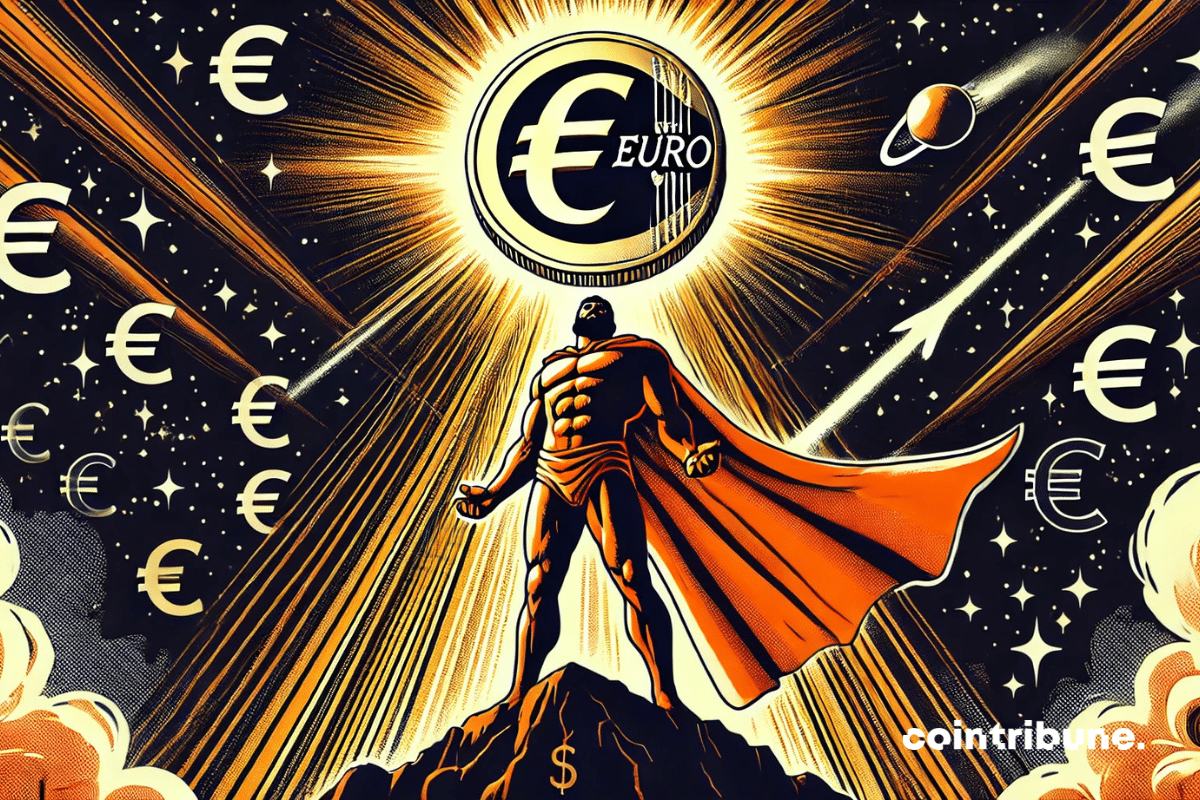In a geopolitical context undergoing a major reshuffle, two significant initiatives are shaking the hegemony of the dollar. Brazil and China are making a strategic shift by favoring their national currencies for bilateral exchanges. For their part, Russia and Iran are announcing the launch of a new common currency to circumvent Western sanctions. These distinct yet converging movements illustrate a shared desire among influential BRICS members: to build a financial system that is less dependent on the greenback and to assert monetary sovereignty in the face of external pressures.
Home » Archives for Luc Jose Adjinacou » Page 4
Luc Jose A.
Diplômé de Sciences Po Toulouse et titulaire d'une certification consultant blockchain délivrée par Alyra, j'ai rejoint l'aventure Cointribune en 2019. Convaincu du potentiel de la blockchain pour transformer de nombreux secteurs de l'économie, j'ai pris l'engagement de sensibiliser et d'informer le grand public sur cet écosystème en constante évolution. Mon objectif est de permettre à chacun de mieux comprendre la blockchain et de saisir les opportunités qu'elle offre. Je m'efforce chaque jour de fournir une analyse objective de l'actualité, de décrypter les tendances du marché, de relayer les dernières innovations technologiques et de mettre en perspective les enjeux économiques et sociétaux de cette révolution en marche.
The sudden calm that falls over a network as active as XRP is never trivial. After a stunning rally at the end of 2024, Ripple's blockchain is experiencing a plunge in its activity. This drop of 65% in just a few weeks is more than just a simple adjustment. It reveals a worrying loss of momentum and raises questions about the strength of the market. Behind the numbers, an entire speculative dynamic seems to be wavering.
In a global market in complete chaos, Warren Buffett stands out as an exception. While the richest fortunes are recording massive losses, the American investor makes 23.4 billion dollars in just a few months. This performance contrasts with the general trend and raises the question: how does the oracle of Omaha manage to thrive where so many others falter? At the head of Berkshire Hathaway, he once again demonstrates that discipline, foresight, and rigorous management can still dictate the rules, even in times of instability.
In a single session, the euro surged 2.15% against the dollar, reaching $1.109, its largest increase since 2015. This abrupt jump exceeds the mechanics of exchange rates. It signals a sudden loss of confidence in the American currency. Through this shift, markets appear to be reassessing the balance of power among major currencies, in a context where macroeconomic signals and central bank choices are redefining monetary fault lines.
In a single session, the euro surged 2.15% against the dollar, reaching $1.109, its largest increase since 2015. This sharp rebound goes beyond the mechanics of exchange rates. It signals a sudden loss of confidence in the American currency. Through this shift, markets seem to be reevaluating the balance of power between major currencies, in a context where macroeconomic signals and the choices of central banks are reshaping the lines of monetary fracture.
Bitcoin could surge to $88,500 this weekend, according to Standard Chartered. Indeed, far from a simple bullish prediction, this projection is part of a complete re-evaluation of the asset's role. For the bank, BTC no longer mimics gold. It now behaves like a leading technological asset, capable of weathering macroeconomic shocks. In a tense market, this stance redraws the lines of an asset undergoing a strategic transformation.
From Brussels, the message is clear: digital giants will have to account for their actions. The platform X, formerly known as Twitter, is under investigation by the European Union for potential major violations of the Digital Services Act. The focus is on the dissemination of illicit content and the lack of cooperation with authorities. The proposed fine could exceed one billion dollars, a record that could mark a turning point in the enforcement of the new European regulation. Elon Musk, its owner, finds himself at the center of an unprecedented regulatory confrontation.
Donald Trump is once again making his mark at the helm of the United States. By launching a vast tariff offensive against almost all of the country's trading partners, the president is triggering an economic and diplomatic earthquake. Wall Street is falling, allies are worried, and Beijing is retaliating. This decision, as much strategic as ideological, marks the overt return of hard protectionism and places American economic sovereignty at the center of the global game.
While Bitcoin has retreated by 25% from its all-time high of over $109,000, an unexpected movement is emerging: whales are returning to their purchases. These large wallets, often seen as market barometers, are marking their first real return to accumulation since August 2024, according to Glassnode. In a context dominated by distribution and a sentiment reminiscent of the lows of 2022, this strategic signal could disturb the prevailing bearish consensus and reignite investor attention on current levels.
What if one of the largest banking groups bet on an outsider rather than the king of the market? In a report that shakes up certainties, Standard Chartered identifies Avalanche (AVAX) as the token to watch by 2029, with an expected performance surpassing that of bitcoin. This bold bet from a major financial institution illustrates a new interpretation of the crypto landscape, where modular and business-oriented blockchains are overtaking the historical giants. A strong signal that could redefine upcoming investment strategies.
A simple political speech can sometimes shake the entire crypto market. This Tuesday, an announcement by Donald Trump about new tariff increases triggered a wave of liquidations exceeding 500 million dollars. Bitcoin, Ethereum, and Solana plunged within a few hours, revealing the market's fragility in the face of geopolitical tensions. While leveraged traders were racking up losses, some institutions quietly took the opportunity to strengthen their positions.
Launched as a promise of crypto democratization via mobile, Pi Network is now facing its biggest turbulence zone. As its Pi token dangerously approaches its historical lows, over 126.6 million new tokens are set to be released in April. This adds extra pressure on an already fragile asset, despite a massive community and stated ambitions. In an increasingly ruthless market, the illusion of success is no longer enough: the Pi ecosystem is wavering, and doubts are settling in.
At the start of this year, amid high geopolitical tension, dedollarization emerges as a strong signal of a global monetary shift. Once relegated to the background of economic debate, this dynamic is intensifying as confidence in the stability of the United States erodes. The dollar's share in global reserves is slowly but surely declining, a trend closely watched by markets and feared by strategists. Behind this retreat, the international monetary order may be entering a phase of reorganization.
Real estate is regaining its color. After a long period of waiting, prices are rising again in many French cities, signaling an unexpected turning point in the market. This upturn, which began at the start of the year, is intensifying due to more attractive borrowing rates and a gradual return of buyers. Both professionals and individuals are closely watching this emerging dynamic, which reshuffles the cards after months of stagnation. In light of this resurgence in activity, observers are pondering: is this a simple cyclical rebound or a true reversal of the cycle?
As the tariff war reignited by Washington captures attention, Bitcoin hovers around $85,000. Some see a cause-and-effect link. However, this quick reading overlooks the essential: it is not geopolitics that is holding back the market, but the lack of concrete catalysts and a silent redistribution of flows towards safer assets. To understand this inertia, one must go beyond this analysis and follow the true signals of the market.













